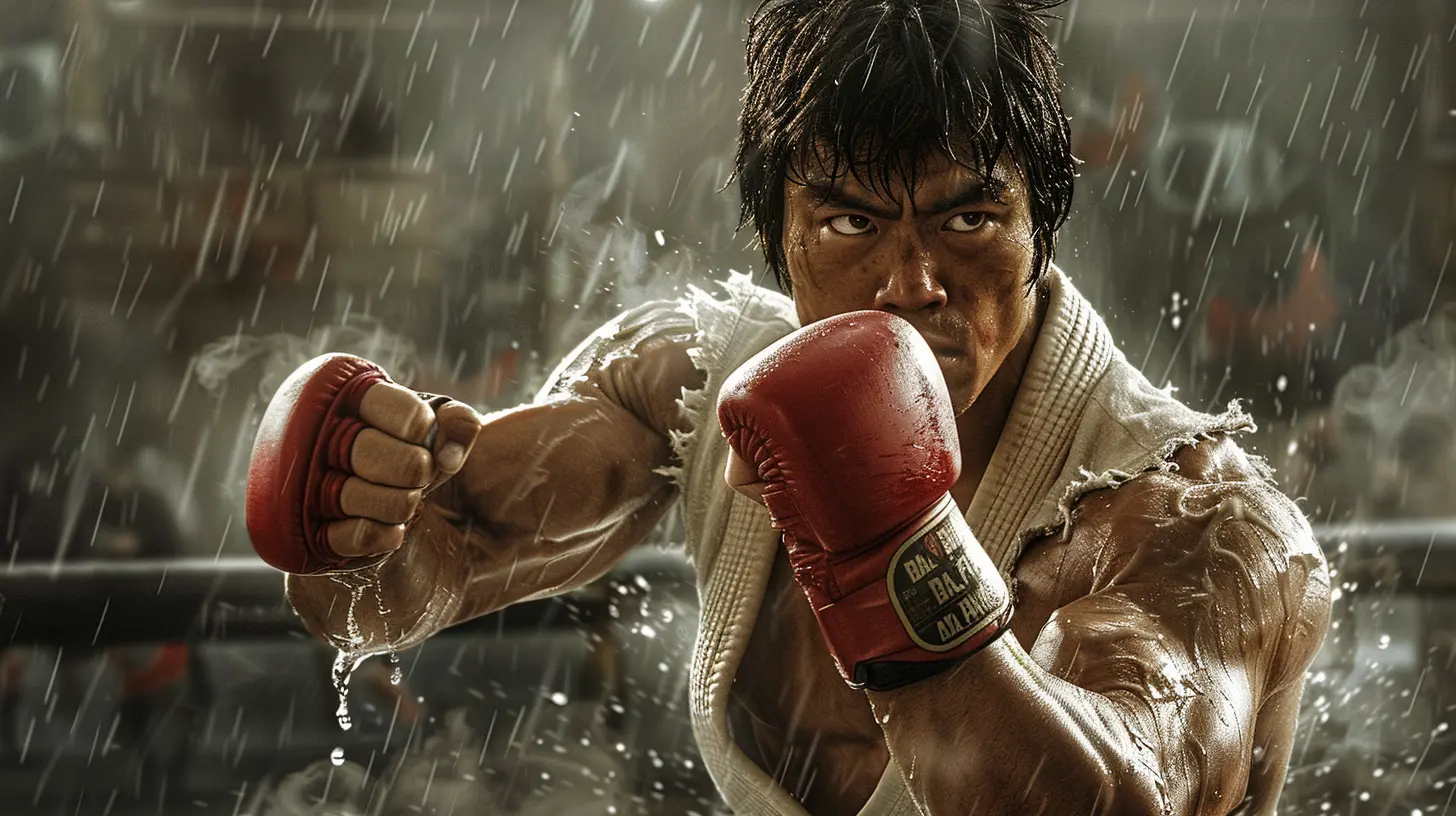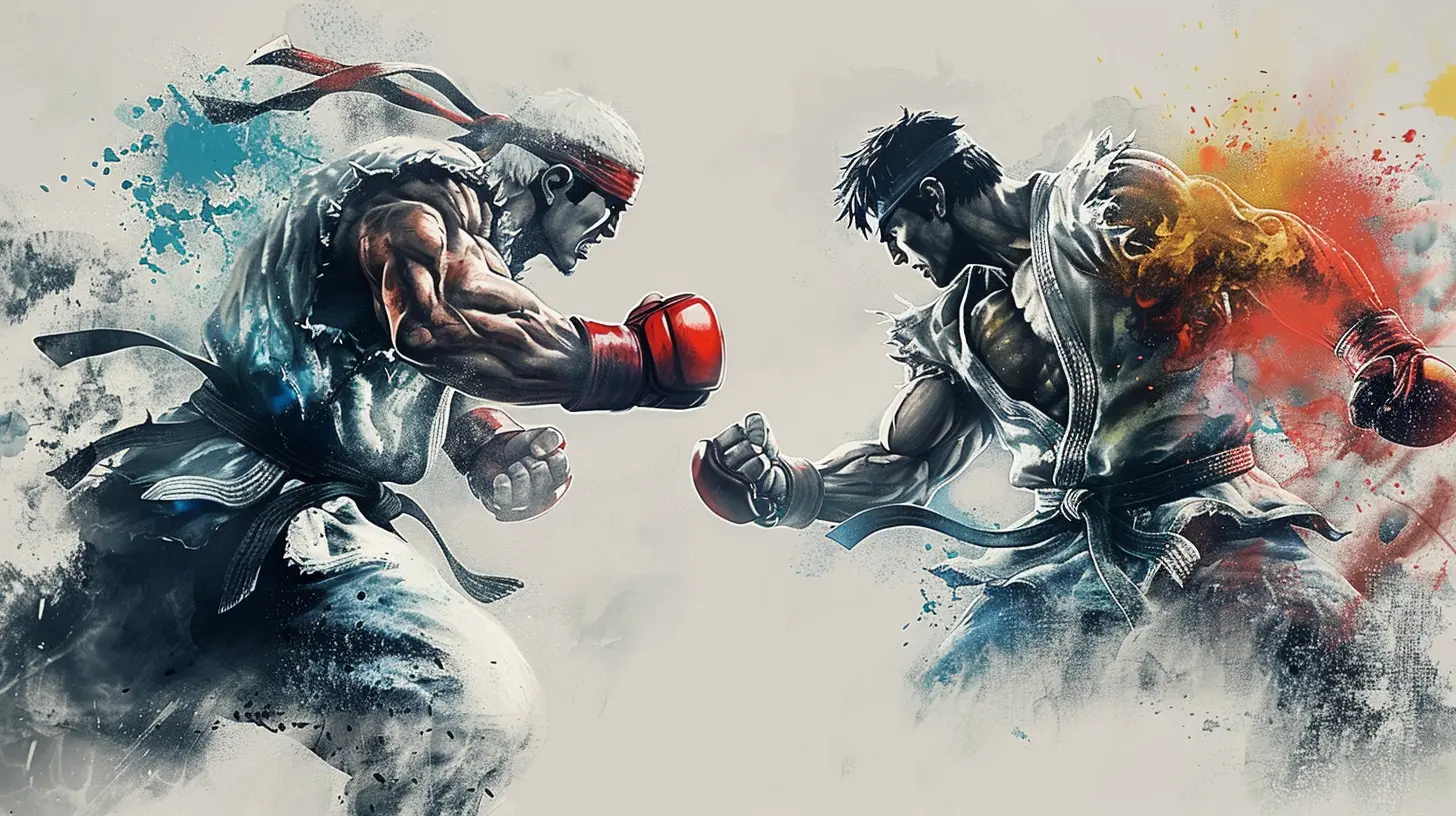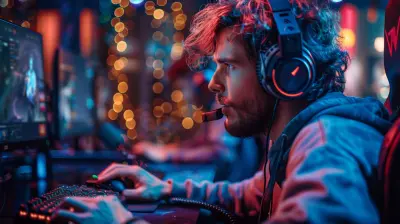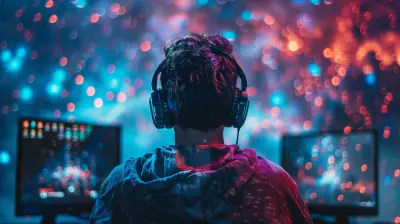The Importance of Precision in Competitive Fighting Games
5 July 2025
When it comes to competitive fighting games, nothing hits harder than precision. Whether you're pulling off pixel-perfect combos, nailing frame-perfect punishes, or executing lightning-fast reactions, precision is the name of the game. It’s what separates the casual button mashers from the esports legends. But why is precision so important? And what can it teach us, not just about gaming, but about focus, strategy, and growth as players? Let’s break it down.
What Is Precision in Fighting Games?
Before we dive into the nitty-gritty, let’s make sure we're all on the same page. In fighting games, precision refers to the level of accuracy in your inputs, movements, and decision-making. It’s not just pressing the right buttons; it’s pressing them at exactly the right time and in the correct sequence. Imagine threading a needle while a fire-breathing dragon’s chasing you—yeah, it’s kinda like that.When you think about precision, you might picture arcade pros landing a 20-hit combo with pinpoint accuracy, and while that’s a massive part of it, precision goes way beyond stylish combos. It involves spacing (positioning your character just right), timing (executing moves at the perfect moment), and even psychology (reading your opponent like a book). Simply put, precision is woven into every fiber of competitive fighting games.
Why Precision Matters in Competitive Play
Now that we know what it is, let’s talk about why it matters. Spoiler alert: it makes all the difference. Precision determines whether you win or lose, climb the leaderboards, or rage-quit after another frustrating loss (we’ve all been there).1. Winning the Micro-Battles
Fighting games are like chess—if chess moved at 60 frames per second. Every match is a series of micro-decisions: Do you block or counterattack? Should you jump in, or is your opponent baiting you? Precision helps you execute these split-second decisions accurately. A mistimed input or poorly spaced attack can result in a devastating punish. One tiny mistake, and it’s curtains.2. Consistency Is King
You know that one friend who can pull off a flashy combo once in a blue moon, but the rest of the time, they can barely land a jab? Yeah, they’re fun to play against, but they’re probably not winning tournaments anytime soon. Precision builds consistency. It’s what lets high-level players perform under pressure, no matter how sweaty the match gets. Muscle memory, timing, and accuracy all come together to create reliable, repeatable results.3. Mind Games: Outsmarting Your Opponent
Fighting games aren’t just about reacting; they’re about thinking two steps ahead. Precision in movement and spacing lets you control the pace of the match, forcing your opponent to play your game. When you’re precise, you can feint attacks, bait mistakes, and punish bad habits with surgical accuracy. It’s like being a puppeteer, pulling the strings while your opponent dances to your tune.4. The Mental Edge
Here’s a harsh truth: sloppy play breeds frustration. Miss too many inputs or whiff critical moves, and your confidence takes a nosedive. On the flip side, playing with precision feels empowering. It’s a rush to see your hard work pay off when you seamlessly execute a game-winning combo. Precision doesn’t just sharpen your gameplay—it sharpens your mindset.
The Role of Practice in Achieving Precision
Okay, so precision is important. But here’s the catch: it doesn’t happen overnight. Nobody picks up a controller for the first time and starts breaking tournament records (if they do, they’re probably some kind of gaming prodigy). Achieving precision takes practice—lots of it.1. Muscle Memory: Repetition Is Key
Ever heard the phrase, “Practice makes perfect”? In fighting games, this is gospel truth. Repetition helps you build muscle memory, so your fingers know what to do before your brain even has to think. Spend time in training mode nailing down those bread-and-butter combos, perfecting your inputs, and refining your movement. It’s not glamorous, but it works.2. Frame Data: The Science of Precision
Yes, this is where things get a little nerdy, but stick with me. Frame data is essentially the blueprint of your game. It tells you how long each move takes to execute, the time it takes to recover, and whether it leaves you at an advantage or disadvantage. Knowing this data is like having a cheat sheet for precision. You’ll understand exactly when to attack, when to block, and when to punish.3. Learn From the Pros
If you want to get good at anything, study the people who are already great at it. Watch top-tier players in action and pay attention to their precision. How do they space their attacks? When do they go for a combo versus a safe poke? The more you observe, the more you’ll start to spot patterns and apply them to your own gameplay.4. Routine and Persistence
Let’s be real: practicing precision can sometimes feel like a grind. But remember, every pro you admire once stood where you are now. Building precision is about putting in the time, day after day, even when progress feels slow. It’s about celebrating small wins—landing that one combo consistently or finally countering a move that’s been tripping you up.
Tools and Tips to Improve Precision
If you’re ready to level up your precision, here are some tips and tools to help you along the way:1. Hit the Training Room
Every fighting game has a practice mode for a reason. Spend time here testing out combos, refining your timing, and learning how your character moves. Don’t just wing it in actual matches—training is where you build the foundation.2. Invest in a Good Controller
Your controller is your weapon, so treat it like one. Whether you prefer a fight stick or a gamepad, find a setup that feels comfortable and responsive. A good controller won’t instantly make you precise, but it will definitely help.3. Break Down Your Mistakes
After every match, take some time to review what went wrong. Did you miss a key input? Were you out of position? Understanding your mistakes is the first step to fixing them. Pro tip: Record your matches and analyze them if you really want to get into the nitty-gritty.4. Focus on One Thing at a Time
Don’t overwhelm yourself by trying to improve every aspect of your gameplay all at once. Pick one area to work on—maybe it’s landing a specific combo or getting better at anti-airs—and focus on that until it becomes second nature.Precision Beyond the Game
Here’s the cool thing about fighting games: the skills you gain don’t just stay in the game. Precision teaches you discipline, focus, and the value of practice—all of which carry over into real life. Need to organize your workday? Plan a presentation? Stay calm in a stressful situation? The mental toughness you build by refining your gameplay can help with all of it.Final Thoughts
At the end of the day, precision is what makes competitive fighting games so addictive and rewarding. It’s not just about winning (though let’s be honest, winning feels amazing). It’s about the satisfaction of improvement, the thrill of executing a plan flawlessly, and the joy of mastering a craft. Whether you’re training for your next tournament or just trying to beat your friends, precision is your best ally. Now grab your controller, hit the training room, and start sharpening those skills—because greatness is all in the details.all images in this post were generated using AI tools
Category:
Competitive GamingAuthor:

Tina Fisher
Discussion
rate this article
2 comments
Eva Lynch
Great article! I appreciate how you highlighted the vital role precision plays in competitive fighting games. Mastering such fine control not only enhances gameplay but also fosters a deeper connection between players and their characters. Looking forward to more insights on this topic!
October 29, 2025 at 3:37 AM

Tina Fisher
Thank you for your thoughtful comment! I'm glad you enjoyed the article and found the insights on precision valuable. Stay tuned for more!
Jessamine McPherson
Precision is the backbone of success in competitive fighting games. Mastering tight inputs and timing not only elevates gameplay but also gives players a critical edge over their opponents. In this arena, every pixel and frame counts—excellence demands precision.
July 16, 2025 at 3:32 PM

Tina Fisher
Absolutely, precision is key—it defines skill and can turn the tide in high-stakes matches. Every frame matters in achieving that competitive edge.


